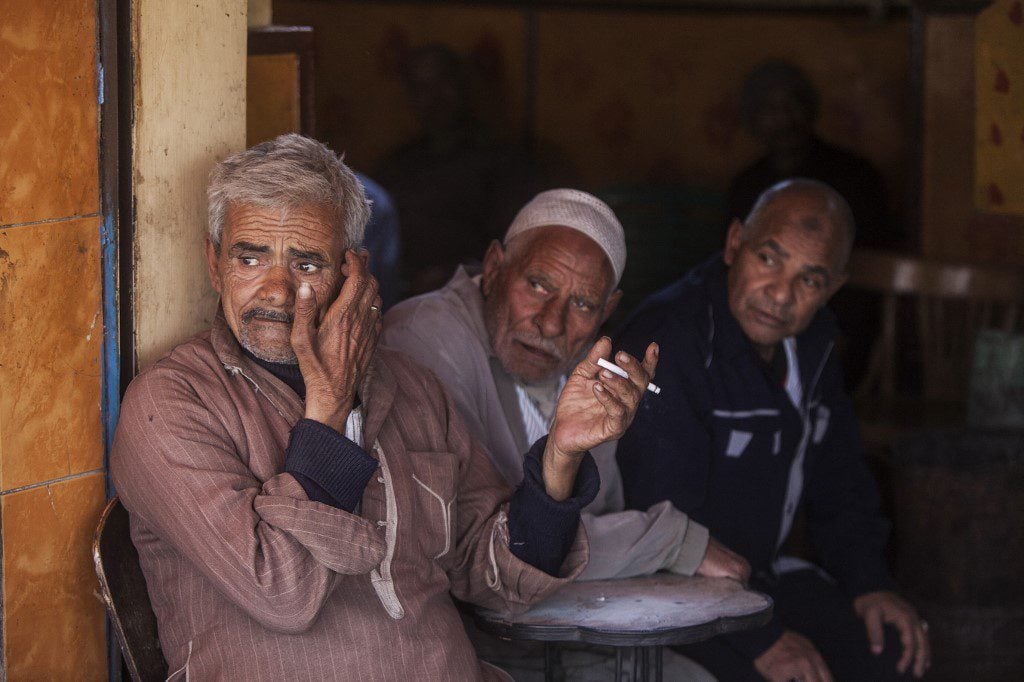
Khaled Mahmoud
“Read the incident” – which is the classic chant of Egyptian newspapers sellers – has disappeared. The reason behind this disappearance is having too many odd and horrific headlines of crimes.
With a population of more than 100 million, the usual daily crimes in Egypt have been replaced by more bizarre, frightening, and surprising crimes that require pondering.
The Egyptian society is known for its religiosity and tolerance. Strange crimes remain a subject of controversy because they move from the pages of the usual incidents in Egyptian newspapers and magazines to and electronic media in a loud manner.
Something has changed in society, which prompts questions about these new cases.
The crimes that shake public opinion have become almost daily, and what is new is that they are different from the usual context, in an unfamiliar way.
Perhaps it takes specialised studies to reveal the reason for the transformation of crime in Egypt over the past years and to human or other motives that cause it.
The issue is related to the quality and quantity of crimes, which have exceeded the limit, and can no longer be compared to the past.
Each new crime that occurs in the country has different specifications, which prompt the question of whether it is related to the changing societal values in the context of the ongoing development.
The crime here and with this description is no longer locally produced. It is true that it happens on Egyptian soil and is committed by ordinary citizens. Nevertheless, it carries a strange and unfamiliar tendency, which also raises questions about the extent to which Egyptian society falls under the pressures of electronic globalisation.
Sometimes, although I read about the crime in the Egyptian media, it seems to me that it took place in another country due to the diversity of justifications for strangeness and unusual innovation.
But the fact is that the crime that occurs is soon circulated on a larger scale than before, due to the massive spread that the traditional media, intentionally or otherwise, helps promote, which transfers the event to the world of gossip and controversy through social networking sites.
You could wait for the morning newspapers to read the incidents page in the past, but now it’s easier and more complex than ever, as crime has become one of the subjects of traditional conversations on Egyptian nights.
You will find that crime is present every night at the dinner table out of astonishment and curiosity about justifications and motives.
Given the nature of the crimes committed, it can be said that those who committed them need to see a psychiatrist, but the matter becomes more tragic when bizarre and unusual killings are repeated.
Unusual accidents have become a regular thing in Egypt for some time now.
Nihad Abu al-Qumsan, head of the Egyptian Center for Women’s Rights, believes that 30 per cent of crimes in society are domestic violence. In a television interview, she attributed the lack of reporting of the crime to people’s fear that “hooliganism in society” would increase.
She pointed out that despite good laws to prevent violence in Egypt, the defect lies in what she described as their poor application.
That prompted some members of the Parliament to hold a public and official discussion on the government’s policy in the face of domestic violence, as it is one of the clear explanations for the increase in divorce cases, which recorded 213,000 cases in 2020, according to the report of the Central Agency for Public Mobilisation and Statistics Authority.
For example, the minister of social solidarity announced that 42.5 per cent of married women between 18 and 64 were subjected to psychological violence from their husbands. At the same time, the child helpline of the National Council for Motherhood and Childhood received in 2020 about 12,000 reports of children being endangered or murdered, 764 of which reported crimes of harassment or rape.
On the other hand, Dr. Menan Abdel-Maksoud, responsible for mental health and addiction treatment at the Ministry of Health, believes that individuals commit 66 per cent of crimes in Egypt under the influence of drugs.
However, the criminal aspect of the crimes has turned into a political matter that some of those bothered by the state of affairs in Egypt are utilising.
In the spring of 2021, the Ministry of Interior was forced to issue a denial of what was promoted by one of the channels loyal to the Muslim Brotherhood, which broadcasts from outside the country, about the high crime rates due to the high cost of living and the Ministry of Interior’s preoccupation with cracking down on opponents instead of focusing on combating crimes and reducing their rates.
At the time, the ministry relied on statistical indicators that crime rates had decreased by 17 per cent compared to the previous year.
DISCLAIMER
The opinions expressed in this publication are those of our bloggers. They do not purport to reflect the opinions or views of Fanack or its Board of Editors.


